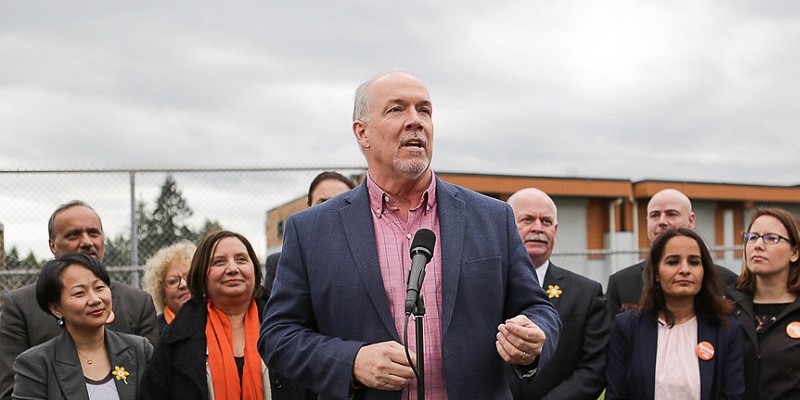B.C. budget fails to tackle big long-term challenges

According to the British Columbia government’s new budget (tabled Feb. 22), the province will see a $5.5 billion operating budget deficit in 2022/23, and is on track to incur two more deficits in subsequent years. While the fiscal outlook is brighter than expected for 2021/22 and revenue projections are up considerably in future years, the Horgan government failed to be prudent with B.C. finances, choosing to increase spending while ignoring big challenges such as an aging population.
According to Budget 2022, provincial revenues are $11.3 billion higher than projected in last year’s budget for 2021/22 and $5.3 billion higher in 2022/23. Unfortunately, the government has squandered some of this additional fiscal room by spending a high share of the influx of revenue and continuing to incur deficits instead of surpluses.
Indeed, increases in program spending have essentially offset the gain in revenue in 2022/23. The government has increased program spending by $5.0 billion relative to last spring’s projections, which is roughly equivalent to the additional amount of revenue it expects to take in this year. Spending will increase markedly across health care, education and social services.
For many reasons, this plan is quite confusing. B.C. is closer to the end of the pandemic today than it was a year ago and spending should be winding down rather than ramping up.
Relatedly, the province expects its net debt to increase by $31.2 billion over the next three fiscal years, primarily due to growing capital and program expenditures. This year’s budget also does little to tackle long-term issues facing provincial finances.
For example, B.C.’s population growth is expected to decline in coming decades. At the same time, British Columbians are living longer. A slower population growth rate coupled with increasing life expectancy means seniors will constitute a greater share of B.C.’s population in the future.
More specifically, British Columbians aged 65 or older currently account for 19.2 per cent of the total population. According to projections, that proportion will reach 26.0 per cent by 2043. This will slow growth in government revenues and drive health-care spending increases.
The amount of taxes individuals pay typically peaks during their working years. In B.C., the working-age (15 to 64) share of the population is projected to decline from 66.9 per cent in 2020 to 62.0 per cent by 2043. Unless there’s a marked increase in senior’s participation in the workforce, this will likely mean a marked decline in the share of British Columbians that are working, driving economic growth and generating tax revenue.
Health-care spending follows almost the exact opposite pattern, skewed towards the first year of life and after retirement. For example, the average annual spending on health care by government on people between the ages of one and 59 is $2,188. This amount almost triples (on average) to $6,424 for Canadians aged 65 to 69. Average per-person spending for those over 70 is $13,797.
The migration pattern of Canadians will likely place further pressure on health-care spending in B.C. One study estimated that from 1980 to 2016, a net total of 40,512 seniors migrated to the province, which is the biggest inflow of seniors among all 10 provinces. When a senior migrates from one province to another, they’re likely to have paid the bulk of their lifetime taxes in one province but consume the majority of their health care in another. The estimated cost to B.C. for health-care expenditures related to these seniors was $7.2 billion in 2016.
Budget 2022 provides some good news as B.C. expects an influx of revenue, but the Horgan government was imprudent with spending and must make policy changes to deal with the province’s aging population to avoid more red ink.
Authors:
Subscribe to the Fraser Institute
Get the latest news from the Fraser Institute on the latest research studies, news and events.

